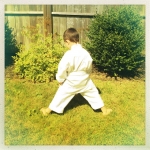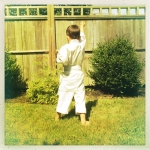Having lived a number of years in Japan, I’ve often heard the Japanese phrase ichi-go ichi-e—literally, “one time, one meeting”—described by Japanese and Westerners alike as carpe diem, “seize the day.” Or, if you prefer the pop-culture version, “YOLO.”
I would argue, however, that though both the Western and Eastern phrases offer up a certain immediacy, they point to different worldviews.
Before I can begin to describe the Japanese saying, I think it is important to bring attention to another word that does not translate well to English, natsukashii. This adjective is said to mean “nostalgic” or “good old” in English, but that does not quite capture the cultural consumption of it in Japan.
Consider: How often did you use some derivative of the word “nostalgic” today? How about this month, even? I’m guessing not often, unless this happens to be the week of your high school reunion.
In Japan, natsukashii is frequently used by young and old alike. It was among my first words in that initial glut of new vocabulary when I moved to Kumamoto in 1999. It is, I would say, a natural and near-inevitable expression of an aesthetic born from a culture of mastery and emulation, a kind of constant longing and appreciation for what came before.
Like carpe diem, ichi-go ichi-e points directly to the present experience. But it does so in a way that also includes natsukashii. It is not simply “pay attention to now.” It is “pay attention to now and rest in the awareness of all that has come before, all of the causes and conditions that now culminate and come together in this present moment; notice that this moment, too, will pass.” Perhaps it is no coincidence that such a concept arose out of a language that has verb forms for the past and present tenses—but none for the future.
“Seize the day,” as it is often intended in American culture, is a call to action in the present only (with some attention to the fact that tomorrow may or may not be). “Make the best use of this day! Take the opportunity! Do what you will because life is short! Partake! Enjoy!”
Ichi-go ichi-e, in contrast, centers on the understanding that this moment absolutely will not continue or be repeated. It is lost forever to the truth of time.
In the martial arts (a context in which the phrase is often used), ichi-go ichi-e may seem particularly relevant in that “what came before” is past effort. All of that culminates in each moment, every time a new effort is made. Thus, there is no “this is just practice.” This is your singular chance to get it right. There is no future chance. There is only now, resting on all that came before. Whether or not the present effort actually produces perfection is irrelevant. All is on the perception of the actor: “This is my one last chance.” Every time.
Tea ceremony, where the Japanese phrase originated, is pregnant with constant and unmistakable reminders of impermanence—seasonal artwork, wabi-sabi utensils, and other invitations to reflect on transience—so that the participants fully realize the theme of past-present in one meeting, one moment. That theme resonates in encounter.
Ichi-go ichi-e, then, is a call to perception. And within this, I feel the potential for a moral sensibility: the reality of impermanence, coupled with the influences of the past, can beget a deep sense of connection to all. It presents a basis of compassion for all beings.
We see how past action and circumstances affect this present moment. And yes, we also grasp the future implications of this karma: all in the next moment will rest on the foundation of this present moment, and on all that came before. We witness and wonder about this in the faces of our children. We know it in ourselves.
As parents, as partners, as friends, as citizens of the world, we feel the weight and the possibility of it—for the whole of our brief lives, now and now and now and now.
—–
Tracy Franz, 40, is a writer, the wife of a Zen Buddhist priest, and the mother of two young children. Her musings on Zen, parenting, and place can be found at One Continuous Mistake (continuousmistake.com).




